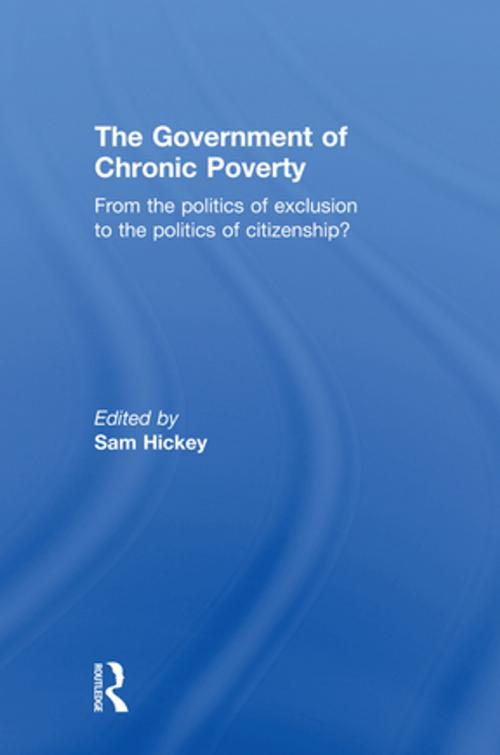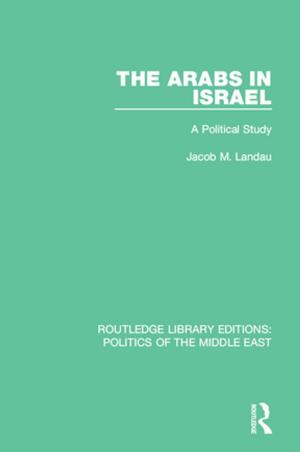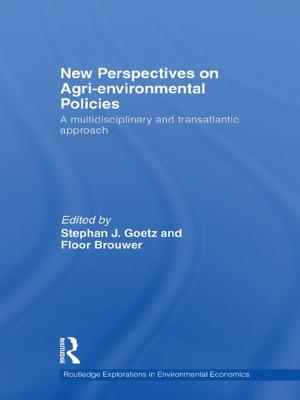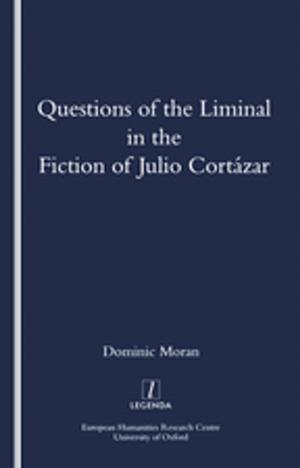The Government of Chronic Poverty
From the politics of exclusion to the politics of citizenship?
Nonfiction, Social & Cultural Studies, Political Science, Government, Civics, Business & Finance| Author: | ISBN: | 9781317982999 | |
| Publisher: | Taylor and Francis | Publication: | October 31, 2013 |
| Imprint: | Routledge | Language: | English |
| Author: | |
| ISBN: | 9781317982999 |
| Publisher: | Taylor and Francis |
| Publication: | October 31, 2013 |
| Imprint: | Routledge |
| Language: | English |
What are the underlying causes of chronic poverty? Can ‘development beyond neoliberalism’ offer the strategies required to challenge such persistent forms of poverty, particularly through efforts to promote citizenship amongst poor people? Drawing on case-study evidence from Africa, Latin America and South Asia, the contributions critically examine different attempts to ‘govern’ chronic poverty via the promotion of particular forms and notions of citizenship, with a specific focus on the role of community-based approaches, social policy and social movements. Poverty is seen here as deriving from underlying patterns of uneven development, involving processes of capitalism and state formation that foster inequality-generating mechanisms and particularly disadvantaged social categories. Sceptics tend to deride the emphasis under current ‘inclusive’ forms of Liberalism on tackling poverty through the promotion of citizenship as inevitably depoliticising and disempowering for poor people, and our cases do suggest that citizenship-based strategies rarely alter the underlying basis of poverty.
However, our evidence also offers some support to those optimists who suggest that progressive moves towards poverty reduction and citizenship formation have become more rather than less likely at the current juncture. The promotion of citizenship emerges here as a significant but incomplete effort to challenge poverty that persists over time.
This book was published as a special issue of the Journal of Development Studies.
What are the underlying causes of chronic poverty? Can ‘development beyond neoliberalism’ offer the strategies required to challenge such persistent forms of poverty, particularly through efforts to promote citizenship amongst poor people? Drawing on case-study evidence from Africa, Latin America and South Asia, the contributions critically examine different attempts to ‘govern’ chronic poverty via the promotion of particular forms and notions of citizenship, with a specific focus on the role of community-based approaches, social policy and social movements. Poverty is seen here as deriving from underlying patterns of uneven development, involving processes of capitalism and state formation that foster inequality-generating mechanisms and particularly disadvantaged social categories. Sceptics tend to deride the emphasis under current ‘inclusive’ forms of Liberalism on tackling poverty through the promotion of citizenship as inevitably depoliticising and disempowering for poor people, and our cases do suggest that citizenship-based strategies rarely alter the underlying basis of poverty.
However, our evidence also offers some support to those optimists who suggest that progressive moves towards poverty reduction and citizenship formation have become more rather than less likely at the current juncture. The promotion of citizenship emerges here as a significant but incomplete effort to challenge poverty that persists over time.
This book was published as a special issue of the Journal of Development Studies.















